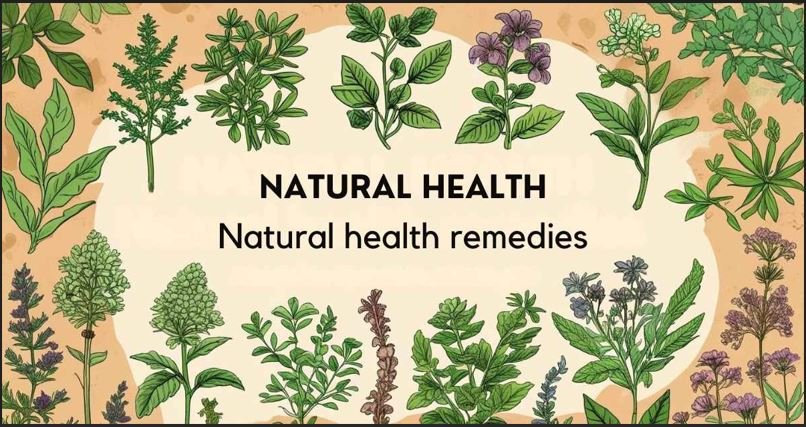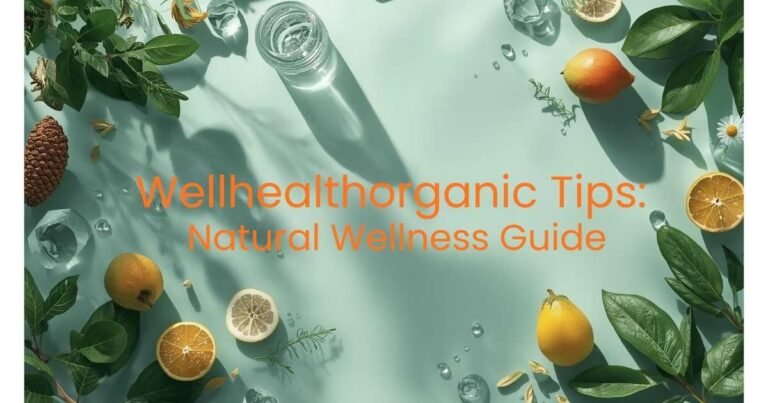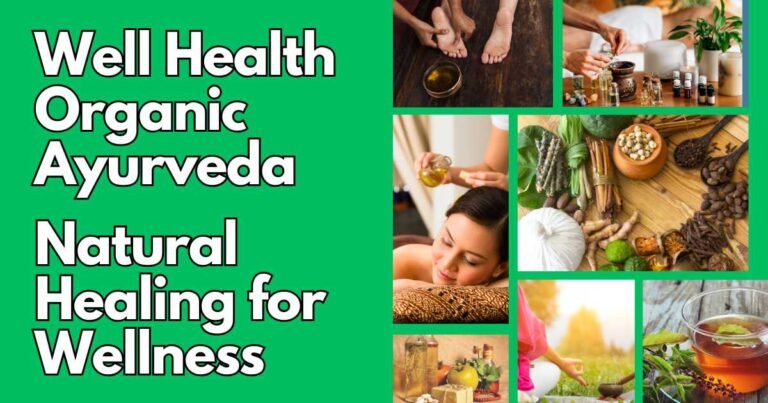Natural Health Remedies: Ultimate Guide to Healing Naturally
Introduction – The Timeless Power of Natural Healing
In a world where modern medicine dominates the headlines, a quieter yet powerful force continues to thrive — natural health remedies.
These are not just old wives’ tales or ancient myths. Many are backed by science, validated by centuries of human experience, and celebrated for their gentle yet effective approach to healing.
Imagine a world where your kitchen cabinet doubles as a pharmacy.
Where ginger tea soothes your cold, turmeric eases your inflammation, and lavender calms your restless mind.
That’s the beauty of natural remedies — they blend the wisdom of nature with the rhythm of daily life.
In this ultimate guide, we’ll explore worth of practical tips, origins, uses, comparisons with modern medicine, and future implications of natural healing.
🌿 What Are Natural Health Remedies?
Natural health remedies are healing methods, treatments, and wellness practices derived from nature — plants, minerals, foods, and even lifestyle habits.
They aim to support the body’s natural ability to heal rather than simply suppress symptoms.
Examples include:
- Herbal treatments like chamomile tea for relaxation
- Nutritional remedies such as garlic for heart health
- Lifestyle-based healing like yoga and meditation for stress reduction
- Topical natural cures such as aloe vera for burns
Unlike synthetic drugs, these remedies often work holistically, targeting not just the illness but the overall balance of body and mind.
📜 The Origins & Philosophical Roots of Natural Healing
The idea of healing through nature is as old as humanity itself.
- Ancient Egypt (around 3000 BC) recorded over 800 herbal treatments in the Ebers Papyrus.
- Traditional Chinese Medicine (TCM) has been practicing herbal and acupuncture-based remedies for over 2,500 years.
- Ayurveda in India — dating back to 1500 BC — emphasizes balancing the body’s three doshas through diet, herbs, and lifestyle.
- Native American tribes used medicinal plants like echinacea and sage for immunity and cleansing.
The underlying philosophy?
The body has an innate intelligence to heal — nature simply provides the tools.
💡 How Natural Remedies Work – The Science Behind the Magic
While traditional medicine often isolates a single chemical compound, natural remedies usually contain multiple bioactive compounds that work together.
This synergy can make them:
- Gentler on the body
- Supportive of overall health
- Effective over longer periods without severe side effects
For example:
- Turmeric contains curcumin, which reduces inflammation by blocking inflammatory pathways in cells.
- Garlic is rich in allicin, a compound known for its antimicrobial properties and support for heart health.
- Honey has natural enzymes and hydrogen peroxide, giving it antibacterial power.
🏥 Natural Remedies vs. Conventional Medicine
| Aspect | Natural Health Remedies | Conventional Medicine |
|---|---|---|
| Source | Plants, minerals, foods | Synthetic chemicals |
| Approach | Holistic, preventive | Symptom-focused |
| Side Effects | Usually mild | Can be significant |
| Speed of Action | Gradual | Often rapid |
| Long-term Use | Safer for ongoing use | Long-term use may cause harm |
| Cost | Generally low | Often high |
Both systems have their strengths.
For emergencies, modern medicine is unmatched. But for long-term wellness and prevention, natural remedies shine.
🌍 Real-World Applications of Natural Health Remedies
1. Boosting Immunity
- Echinacea tea during cold seasons
- Vitamin C-rich foods like oranges, kiwi, and guava
- Probiotics from yogurt to strengthen gut health
2. Mental Health & Relaxation
- Chamomile tea for better sleep
- Lavender oil for reducing anxiety
- Meditation to calm the mind
3. Skin & Beauty
- Aloe vera gel for burns and acne
- Coconut oil for hydration
- Green tea as an anti-aging antioxidant
4. Digestive Health
- Ginger tea for nausea
- Peppermint oil for IBS relief
- Fenugreek seeds for heartburn
5. Pain & Inflammation
- Turmeric & black pepper mix for arthritis
- Clove oil for toothache
- Warm compress with herbal infusions for sore muscles
🔮 The Future of Natural Remedies
The demand for plant-based and holistic treatments is rising globally.
Trends show:
- Integrative medicine combining both systems
- Scientific research proving the efficacy of traditional herbs
- Personalized natural health based on genetics and microbiome studies
Ethical considerations:
- Avoid overharvesting endangered plants
- Ensure remedies are safe and tested
- Educate users to prevent misuse
✅ Best Practices for Using Natural Remedies
- Consult professionals before starting any herbal treatment — especially if you’re pregnant, elderly, or on medication.
- Start small — test for allergies or sensitivities.
- Choose quality products — organic, pesticide-free herbs are best.
- Track results — keep a wellness journal.
- Combine with healthy habits — remedies work best alongside good nutrition, exercise, and stress management.
🌟 Conclusion – Returning to Nature’s Pharmacy
Natural health remedies are not just an alternative — they are humanity’s original medicine.
They remind us that healing is not always about a quick fix but about restoring balance, nourishing the body, and respecting nature’s wisdom.
The key is integration:
Use modern medicine for emergencies and natural remedies for prevention, wellness, and everyday healing.
Nature has always had our back.
We just need to listen.
❓ FAQs – Natural Health Remedies
1. Are natural remedies safe?
Most are safe when used correctly, but always check for allergies and drug interactions.
2. Can natural remedies replace medicine?
They can complement it, but serious conditions may still require professional treatment.
3. How long do they take to work?
Some work immediately (like peppermint for nausea), while others may take weeks (like turmeric for inflammation).
4. Are they scientifically proven?
Many have strong scientific backing, but quality varies between remedies.
5. Can children use natural remedies?
Some are safe for kids, but doses should be adjusted and checked with a pediatrician.





